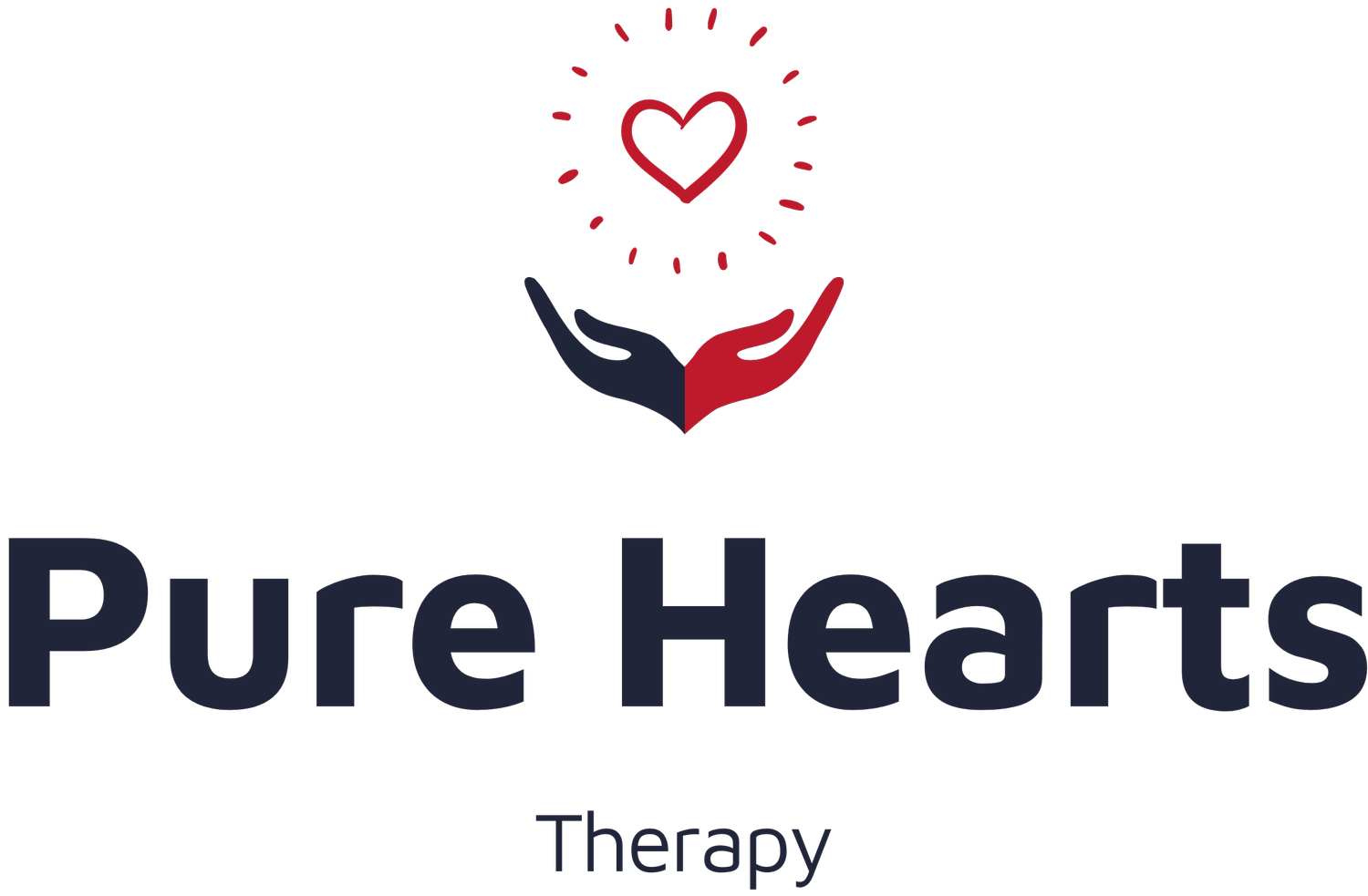Make a Splash: How Aquatic Therapy Benefits Kids with Special Needs
What Is Aquatic Therapy?
Aquatic therapy is a type of physical or occupational therapy conducted in a warm water pool by specially trained therapists. Unlike traditional swimming lessons, this therapy uses the unique properties of water—buoyancy, resistance, and hydrostatic pressure—to help children work on physical, sensory, and emotional goals in a safe and engaging environment.
At Pure Hearts Therapy, we offer aquatic therapy during the Arizona summer months at a Phoenix-area pool, making it a perfect seasonal option for kids in need of fun and functional support.
Ready to get started? Book your free consultation today.
Motor Skill Benefits of Aquatic Therapy
Water creates a natural, low-impact playground for building strength and coordination:
Buoyancy = Easier Movement
In water, the body feels lighter. Kids who struggle with mobility on land can often walk, run, or jump more freely in water. For example, a child with low muscle tone might confidently run in chest-deep water without falling—boosting both strength and self-belief.Resistance = Strength-Building
Water resists movement in all directions, turning play into a workout. Activities like kicking, splashing, or pushing toys underwater naturally strengthen muscles and improve endurance.Core and Balance Work
Water’s movement challenges the body to stabilize. Balancing on one foot or walking on submerged steps activates core muscles and improves body awareness,—skills that carry over to daily life on land.
Sensory and Relaxation Benefits
Aquatic therapy is especially powerful for kids with sensory processing challenges, including those with autism:
Hydrostatic Pressure = Whole-Body Calm
Water applies gentle pressure across the body, similar to a calming hug or weighted blanket. This deep pressure input can help regulate overstimulated nervous systems.Quieter, Safer Environment
Many children feel less anxious in water—falls don’t hurt, and sound is muffled. The therapy setting is controlled and peaceful, far from the chaos of a public pool.Engaging Sensory Play
Blowing bubbles, grabbing toys, or splashing through different textures all support sensory integration in a fun, regulated way. Even visual input is softened—light sparkles, and fast movements are filtered—helping kids stay grounded.
Confidence, Joy & Motivation
Aquatic therapy doesn’t just build skills—it lifts spirits.
Confidence Through Capability
Some kids experience a new kind of freedom in water. For example, a child in a wheelchair might float and move independently, discovering abilities they don’t experience on land.Play-Based Motivation
Kids are more likely to try hard tasks in water. A child who avoids land-based therapy might enthusiastically do 10 “step-ups” in the pool if it feels like a game.Positive Carryover
Progress in water often leads to improved self-esteem, reduced anxiety, and a greater willingness to try new activities—even outside of therapy.
Curious if this could help your child? Schedule a discovery call.
Who Can Benefit?
Aquatic therapy can support a wide range of children, including those with:
Autism & ADHD
Offers rich sensory input and helps focus energy into productive movement. Also great for practicing social and instructional skills in a low-pressure setting.Cerebral Palsy or Physical Disabilities
Reduces stress on joints and muscles, allowing movements that may be painful or impossible on land. Improves flexibility and range of motion.Coordination or Low Muscle Tone
Water gives kids more time to react and balance while safely strengthening weak muscles.Emotional or Behavioral Needs
The calming, consistent input of water can improve mood, reduce meltdowns, and support emotional regulation.
Safety First: Guided by Professionals
All aquatic therapy sessions are led by licensed therapists trained in water safety. Floatation devices and step-by-step acclimation are used as needed, especially for kids who are nervous about water.
Even if a child isn’t fully comfortable in the pool, we begin gradually—sitting on the steps, splashing with toys, or dipping feet. Overcoming water fears is often an unexpected but powerful bonus.
Note: While summer is ideal for pool-based therapy in Arizona, some activities can continue year-round—like fun bath-time “exercises” or visiting indoor pools when the weather cools.
Make a Splash This Summer!
If you're curious whether aquatic therapy for children is the right fit for your child, we’d love to talk. At Pure Hearts Therapy, we consider each child’s unique needs—medical, sensory, and emotional—and customize the therapy experience to help them thrive.
"One parent shared that their son sleeps better on aquatic therapy days because he’s ‘happily tired’—a win for the whole family!"
🎯 Spots are limited for summer aquatic therapy. Don’t wait—contact us today to schedule an evaluation or ask questions.
💧 Want to see if your child qualifies? Book a free consultation here.

